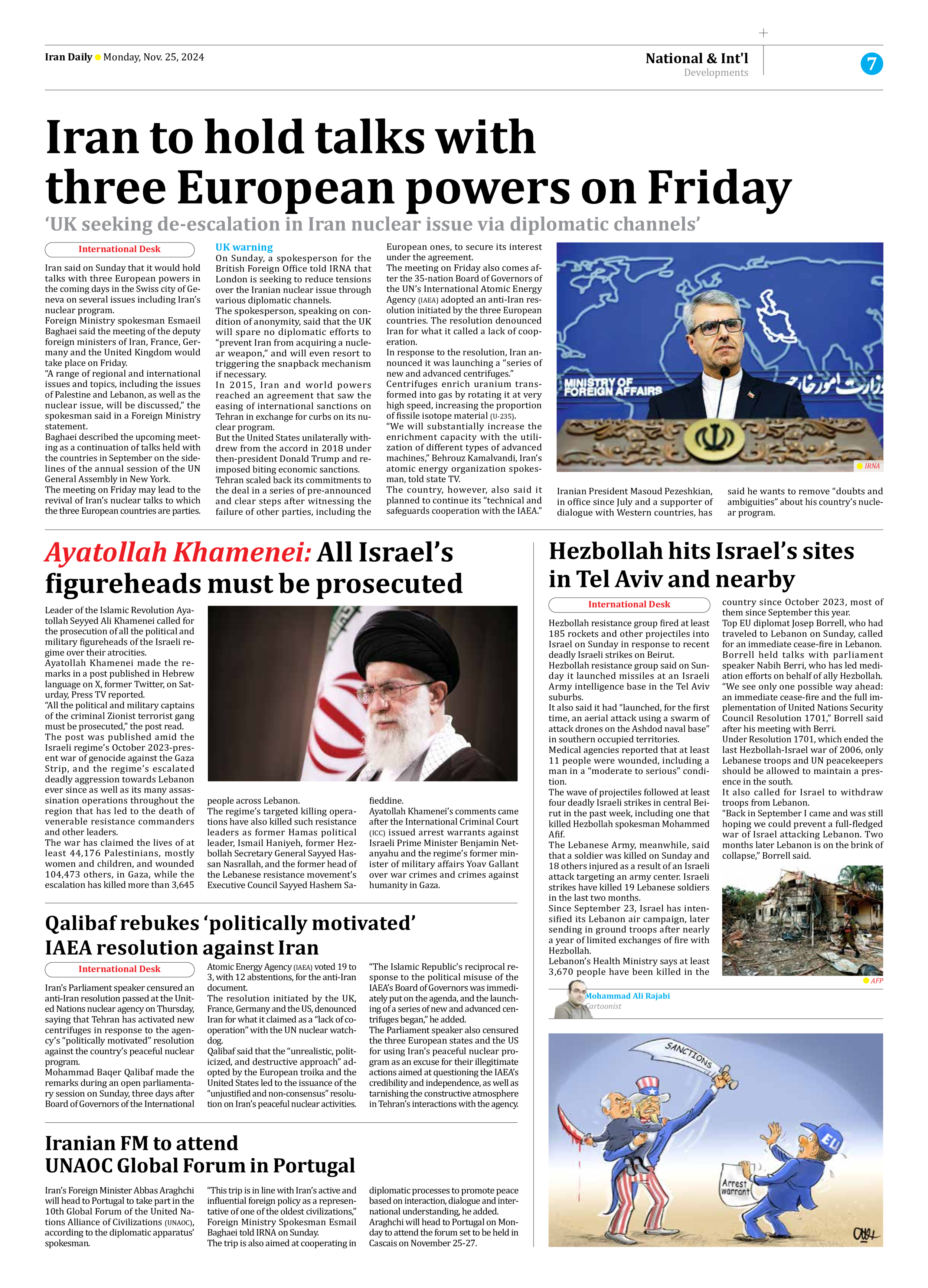
Iran to hold talks with three European powers on Friday
‘UK seeking de-escalation in Iran nuclear issue via diplomatic channels’
Iran said on Sunday that it would hold talks with three European powers in the coming days in the Swiss city of Geneva on several issues including Iran’s nuclear program.
Foreign Ministry spokesman Esmaeil Baghaei said the meeting of the deputy foreign ministers of Iran, France, Germany and the United Kingdom would take place on Friday.
“A range of regional and international issues and topics, including the issues of Palestine and Lebanon, as well as the nuclear issue, will be discussed,” the spokesman said in a Foreign Ministry statement.
Baghaei described the upcoming meeting as a continuation of talks held with the countries in September on the sidelines of the annual session of the UN General Assembly in New York.
The meeting on Friday may lead to the revival of Iran’s nuclear talks to which the three European countries are parties.
UK warning
On Sunday, a spokesperson for the British Foreign Office told IRNA that London is seeking to reduce tensions over the Iranian nuclear issue through various diplomatic channels.
The spokesperson, speaking on condition of anonymity, said that the UK will spare no diplomatic efforts to “prevent Iran from acquiring a nuclear weapon,” and will even resort to triggering the snapback mechanism if necessary.
In 2015, Iran and world powers reached an agreement that saw the easing of international sanctions on Tehran in exchange for curbs on its nuclear program.
But the United States unilaterally withdrew from the accord in 2018 under then-president Donald Trump and reimposed biting economic sanctions.
Tehran scaled back its commitments to the deal in a series of pre-announced and clear steps after witnessing the failure of other parties, including the European ones, to secure its interest under the agreement.
The meeting on Friday also comes after the 35-nation Board of Governors of the UN’s International Atomic Energy Agency (IAEA) adopted an anti-Iran resolution initiated by the three European countries. The resolution denounced Iran for what it called a lack of cooperation.
In response to the resolution, Iran announced it was launching a “series of new and advanced centrifuges.”
Centrifuges enrich uranium transformed into gas by rotating it at very high speed, increasing the proportion of fissile isotope material (U-235).
“We will substantially increase the enrichment capacity with the utilization of different types of advanced machines,” Behrouz Kamalvandi, Iran’s atomic energy organization spokesman, told state TV.
The country, however, also said it planned to continue its “technical and safeguards cooperation with the IAEA.”
Iranian President Masoud Pezeshkian, in office since July and a supporter of dialogue with Western countries, has said he wants to remove “doubts and ambiguities” about his country’s nuclear program.







